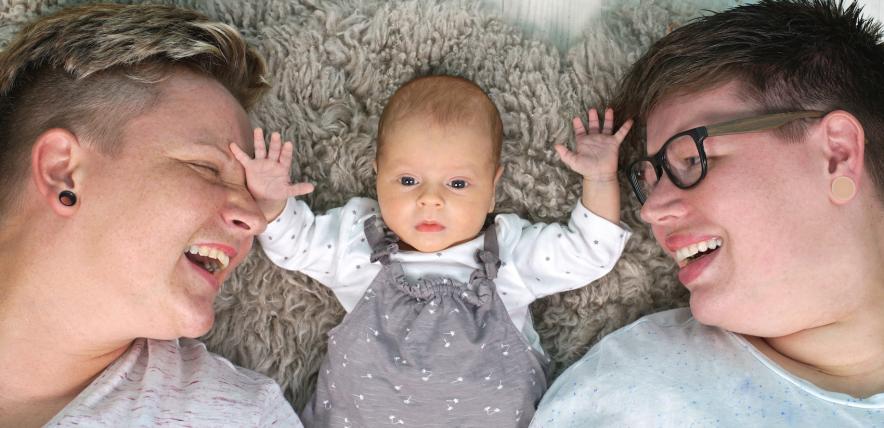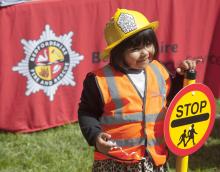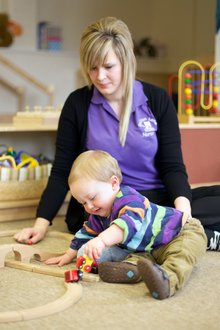Family Connects are one-off online events providing an opportunity to connect with other parents and carers via Zoom and learn about topics relevant to families and children aged 0-5. Plus you will share ideas in how to support children’s early education and each other.
Bilingualism - making it count
Wednesday 24 September, 6pm - 7pm
Together we will look at top tips and ideas to help your child learn more than one language, and think about the sort of strategies that an early years educator will use to help your child with their learning.
Building minds - understanding constructive play and role play
Wednesday 1 October, 6.30pm - 7.30pm
Join us for an engaging session where Maurice the Author dives into the world of constructive play and role play—two essential forms of learning through play. Learn what defines each type, how they support key areas of development, and how to create rich, play-based experiences for children. Whether you’re a parent, educator, or caregiver, this session will leave you inspired and equipped to make play more purposeful.
Maurice Matthew is a self published author who found motivation in 2019 after the birth of his daughter. As a father who actively enjoys reading to his daughter, he began to realise that a lot of books had limited representation of fathers in an active role. This led to the development and publication of his first title, When Does Daddy Love You, which actively promote inclusivity of father’s in the lives of their children.
A bond between a father and child, like a mothers, is one rooted in love dedication and bonding. As fathers open the gates of love toward their child there is no better way than a positive representation of a male role model actively engaging with the child.
Exploring schemas
Thursday 9 October, 1pm - 2pm
Have you noticed your child likes to throw food from their high chair at mealtimes? Or separate the different foods on their plate? Or maybe they like to move things from one place to another?
It could be that your child is exploring a schema. Schemas are repeated patterns of play which help children to learn and make sense of the world.This session will explore what schemas are and the things you may observe in your children, as well as consider ways that you can support your child with simple activities you can do in the home.
How babies communicate before words
Wednesday 29 October, 6.30pm - 7.30pm
In this Family Connect session we discover how language is so much more than the words that we say. Babies use their faces, their bodies, their babbles and their cries to communicate their wants, needs and desires, and to interact with others around them. We will focus on how adults can recognise and respond to the many ways that babies communicate before words, and support early language skills in the home learning environment.
Songs, stories and rhymes - supporting early communication
Monday 10 November, 10am - 11am
“Knowing more words, makes you smarter!” In this session we explore the importance of speech and language development and how you can support your children’s early communication.
Join us to explore why communication and language development is so important in the early years, and how you can encourage this at home with songs, stories and rhymes packed with lots of information, ideas, and tips!
Supporting children's emotional wellbeing
Wednesday 26 November 6.30pm - 7.30pm
Parents provide the main support to children’s emotional development. We will discover how you can help your children as they become people in their own right; learning to walk, talk and master other routines of daily life and how to help you manage children’s moods. Join us to understand what children need emotionally, and how best to encourage healthy emotional development.
Building babies' brains
Thursday 4 December 10am - 11am
Did you know that in the first years of a child’s life their brains develop rapidly? In this Family Connect session we'll discuss children's early brain development and explore ideas to actively engage your child through everyday activities like playing, reading and being there when they feel stress. We'll share information and ideas to support you to help your baby develop a healthy brain.
Free resources for families








